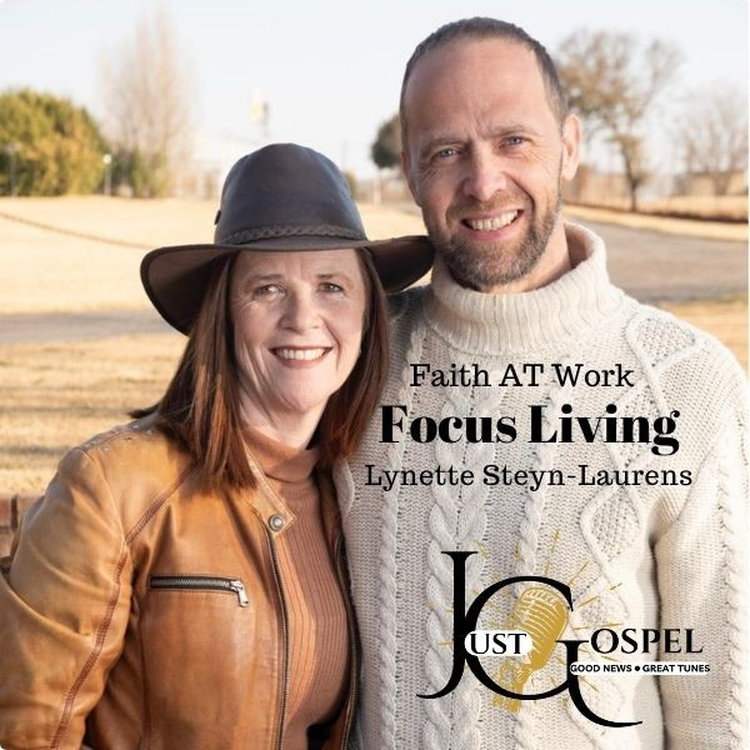
Focus Living: Teaching Children Boundaries - Reactive vs Proactive Approaches
Loading player...
Program: Morning Radio Show
Guest: Lynette (Counselor/Parenting Expert)
Host: Malefa
Topic: Setting Boundaries for Children - Reactive vs Proactive Methods
Episode Overview
Lynette returns to discuss the critical distinction between reactive and proactive boundaries in child-rearing. This episode focuses on helping parents understand why traditional reactive discipline often fails and how to implement proactive, values-based boundary setting from infancy through adolescence.
Key Concepts Defined
Reactive Boundaries:
Acting in response to situations after they occur
Identifies problems but doesn't solve them
Often involves anger, punishment, or withdrawal
Creates victim mentality and external blame
Proactive Boundaries:
Creating/controlling situations before problems arise
Goes beyond problem identification to problem-solving
Based on internal values and principles
Teaches children self-regulation and responsibility
Biblical Foundation
Three key verses support proactive parenting:
Ephesians 6:4 - "Do not provoke your children to anger, but bring them up in discipline and instruction of the Lord"
Proverbs 22:6 - "Train up a child in the way he should go; even when he is old, he will not depart from it"
Proverbs 4:23 - "Keep your heart with all vigilance, for from it flow the springs of life"
Common Reactive Behaviors in Children
Tantrums - Often in public places for maximum effect
Oppositionism - Automatically opposing parental requests
Whining/Complaining - Persistent protests to get desires met
Impulsivity - Saying hurtful things or throwing objects
Fighting/Violence - Physical expressions of frustration
Implementing Proactive Boundaries
Start from Day One:
Even infant care teaches boundaries (warmth, feeding, eye contact)
Consistency from birth builds foundation for later learning
Key Steps:
Acknowledge feelings - "I see you're upset"
Explain the situation - Why the behavior isn't acceptable
Connect to values - Link to respect, kindness, God's teachings
Offer choices - Let child participate in solution
Follow through - Maintain consequences consistently
Practical Examples
Scenario: Child wants chocolate at store checkout
Acknowledge: "I see you really want that chocolate"
Explain: "We can't buy chocolate every shopping trip"
Values: "We need to respect others in the store"
Choice: "You can calm down now and maybe get one next time, or continue tantrum and stay home next trip"
Physical outlets for emotions:
Running races to release anger
Punching bags for teenagers
Physical exercise as emotional regulation
Long-term Benefits
Children learn to:
Take ownership of feelings
Make decisions based on internal values
Resist peer pressure
Protect themselves from abuse
View their bodies as God's temple
Develop healthy adult relationships
Warning Signs of Reactive Parenting
Adult phrases indicating reactive patterns:
"I'm writing him/her off"
"Enough is enough"
"If she doesn't apologize, I'll never speak to her again"
"What can I do to change my spouse?"
These indicate unresolved childhood boundary issues.
Key Takeaways
Cannot change others - Only ourselves and our responses
Copy-paste behavior - Children mirror parental reactions
Values over rules - Principles guide behavior in any situation
Maturity required - Parents must manage own emotions first
Introspection essential - Understanding triggers prevents reactive responses
Looking Ahead
This episode serves as Part 1 of a potential series on boundaries, addressing the foundational concepts parents need to raise emotionally healthy, self-regulated children who can set appropriate boundaries throughout life.
Guest: Lynette (Counselor/Parenting Expert)
Host: Malefa
Topic: Setting Boundaries for Children - Reactive vs Proactive Methods
Episode Overview
Lynette returns to discuss the critical distinction between reactive and proactive boundaries in child-rearing. This episode focuses on helping parents understand why traditional reactive discipline often fails and how to implement proactive, values-based boundary setting from infancy through adolescence.
Key Concepts Defined
Reactive Boundaries:
Acting in response to situations after they occur
Identifies problems but doesn't solve them
Often involves anger, punishment, or withdrawal
Creates victim mentality and external blame
Proactive Boundaries:
Creating/controlling situations before problems arise
Goes beyond problem identification to problem-solving
Based on internal values and principles
Teaches children self-regulation and responsibility
Biblical Foundation
Three key verses support proactive parenting:
Ephesians 6:4 - "Do not provoke your children to anger, but bring them up in discipline and instruction of the Lord"
Proverbs 22:6 - "Train up a child in the way he should go; even when he is old, he will not depart from it"
Proverbs 4:23 - "Keep your heart with all vigilance, for from it flow the springs of life"
Common Reactive Behaviors in Children
Tantrums - Often in public places for maximum effect
Oppositionism - Automatically opposing parental requests
Whining/Complaining - Persistent protests to get desires met
Impulsivity - Saying hurtful things or throwing objects
Fighting/Violence - Physical expressions of frustration
Implementing Proactive Boundaries
Start from Day One:
Even infant care teaches boundaries (warmth, feeding, eye contact)
Consistency from birth builds foundation for later learning
Key Steps:
Acknowledge feelings - "I see you're upset"
Explain the situation - Why the behavior isn't acceptable
Connect to values - Link to respect, kindness, God's teachings
Offer choices - Let child participate in solution
Follow through - Maintain consequences consistently
Practical Examples
Scenario: Child wants chocolate at store checkout
Acknowledge: "I see you really want that chocolate"
Explain: "We can't buy chocolate every shopping trip"
Values: "We need to respect others in the store"
Choice: "You can calm down now and maybe get one next time, or continue tantrum and stay home next trip"
Physical outlets for emotions:
Running races to release anger
Punching bags for teenagers
Physical exercise as emotional regulation
Long-term Benefits
Children learn to:
Take ownership of feelings
Make decisions based on internal values
Resist peer pressure
Protect themselves from abuse
View their bodies as God's temple
Develop healthy adult relationships
Warning Signs of Reactive Parenting
Adult phrases indicating reactive patterns:
"I'm writing him/her off"
"Enough is enough"
"If she doesn't apologize, I'll never speak to her again"
"What can I do to change my spouse?"
These indicate unresolved childhood boundary issues.
Key Takeaways
Cannot change others - Only ourselves and our responses
Copy-paste behavior - Children mirror parental reactions
Values over rules - Principles guide behavior in any situation
Maturity required - Parents must manage own emotions first
Introspection essential - Understanding triggers prevents reactive responses
Looking Ahead
This episode serves as Part 1 of a potential series on boundaries, addressing the foundational concepts parents need to raise emotionally healthy, self-regulated children who can set appropriate boundaries throughout life.



